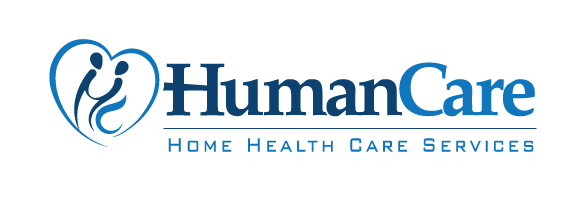Unleashing the Potential of Consumer-Directed Services (CDS)
Unlock the potential of consumer-directed services (CDS) in healthcare. Explore benefits, challenges, and the future of CDS.

Understanding Consumer-Directed Services (CDS)
Consumer-Directed Services (CDS) is a program that offers individuals greater control and flexibility in managing their own care by allowing them to hire and direct their own caregivers. This section will delve into what CDS entails, its benefits, as well as eligibility and availability.
.jpg)
What are Consumer-Directed Services (CDS)?
Consumer-Directed Services (CDS) is a program that empowers individuals to have a more active role in their care by allowing them to hire and manage their own caregivers. Under CDS, participants are considered the employer of their caregivers and have the authority to make decisions regarding the nature and schedule of the care provided.
The CDS program is designed for individuals who require assistance with activities such as bathing, dressing, and meal preparation. It offers a person-centered approach to care, enabling individuals to choose their own caregivers, including certain family members, fostering a sense of familiarity and trust.
The Benefits of Consumer-Directed Services (CDS)
Consumer-Directed Services (CDS) provides several benefits to individuals seeking greater control over their care. Some of the key advantages include:
- Increased Independence: CDS allows individuals to make decisions about their care, providing them with a greater sense of independence and autonomy. They can choose the caregivers who best meet their needs and preferences, enabling them to maintain their preferred lifestyle.
- Personalized Care: With CDS, individuals have the opportunity to select caregivers who understand their unique needs and preferences. This personalized approach to care can enhance the overall quality of services received and foster stronger relationships between individuals and their caregivers.
- Flexibility and Control: By being the employer of their caregivers, participants have the flexibility to determine the schedule and nature of the care provided. This level of control enables individuals to tailor their care arrangements to best suit their lifestyle and individual requirements.
Eligibility and Availability of Consumer-Directed Services (CDS)
The availability of Consumer-Directed Services (CDS) may vary depending on the state and specific programs offered. In some cases, CDS may be available as part of Medicaid-funded services, allowing individuals to use their allocated budget to pay for caregivers of their choice.
Eligibility for CDS is typically determined based on the individual's need for assistance with activities of daily living and their desire to self-direct their care. Specific eligibility criteria may vary across states and programs, so it is important to consult local authorities or relevant healthcare agencies to determine eligibility.
CDS programs aim to provide individuals with greater flexibility and control over their care, empowering them to make decisions that best align with their needs and preferences. By offering personalized care and fostering independence, CDS can enhance the overall well-being and satisfaction of individuals receiving services.
How Consumer-Directed Services (CDS) Work
Consumer-Directed Services (CDS) empower individuals to have greater control and flexibility over their care. This section will explore the role of the individual in CDS, the process of hiring and managing caregivers in CDS, and the flexibility and control that individuals have in this program.
The Role of the Individual in CDS
In CDS, individuals play a central role in managing their own care. They become the employers of their caregivers and have the authority to make decisions regarding their care. This shift in responsibility gives individuals a sense of empowerment and allows them to tailor their services to their specific needs and preferences.
By being actively involved in the hiring and management of their caregivers, individuals have the opportunity to select individuals who are the best fit for their unique care requirements. They can consider factors such as compatibility, experience, and qualifications when making these decisions. This level of involvement fosters a sense of trust and rapport between the individual and their caregivers, leading to a more personalized and satisfactory care experience.
Hiring and Managing Caregivers in CDS
Under the CDS program, individuals have the responsibility of recruiting, hiring, and managing their caregivers. This allows them to choose individuals who align with their values and needs. The hiring process typically involves conducting interviews, checking references, and reviewing qualifications. By being actively involved in the selection process, individuals can ensure that they have caregivers who are competent, reliable, and compatible with their care requirements.
Once caregivers are hired, individuals are responsible for managing their performance and ensuring that the care provided meets their expectations. This may involve setting clear expectations, providing training, and establishing open lines of communication. Regular evaluations and feedback sessions are essential to maintain a high standard of care and address any concerns or issues that may arise.
Flexibility and Control in CDS
One of the key advantages of CDS is the flexibility and control it offers to individuals. Participants have the authority to determine the schedule and nature of the care provided. This level of customization allows individuals to receive care that aligns with their lifestyle, preferences, and specific needs.
Flexibility also extends to the ability to choose caregivers who are familiar with the individual's cultural background, language, or personal preferences. This can foster a sense of comfort and enhance the overall care experience.
By having control over their care, individuals can remain in their own homes and communities, receiving the necessary support while maintaining independence. This personalized approach enhances the overall quality of life for individuals in the CDS program.
In summary, CDS places the individual at the center of their care. They have the responsibility of hiring and managing their caregivers, allowing for a more personalized and tailored care experience. The flexibility and control offered by CDS empower individuals to remain in their homes and communities while receiving the necessary support to enhance their quality of life.
%20How.jpg)
The Impact of Consumer-Directed Services (CDS)
Consumer-Directed Services (CDS) have a profound impact on individuals' lives by promoting independence, enhancing quality of life, and providing financial considerations. Let's explore these impacts further.
Independence and Empowerment in CDS
CDS empowers individuals by providing them with the opportunity to live in their own homes and communities while receiving the necessary care and support. It allows individuals with disabilities to have greater control over their lives, enabling them to choose where they live, with whom they live, and how they work towards personal goals. By bypassing traditional agency-based support services, individuals with disabilities can hire and manage their own support staff, customizing support services to better fit their specific needs and preferences. This level of control fosters a sense of autonomy and self-determination, increasing independence and empowerment.
Enhancing Quality of Life with CDS
Consumer-Directed Services have a positive impact on the overall well-being and quality of life for participants. By allowing individuals to remain in their homes and communities instead of institutional settings, CDS supports enhanced quality of life outcomes and overall well-being. Participants have the ability to choose their own caregivers and services, fostering a sense of autonomy and control. This personalized approach to care contributes to improved emotional well-being and satisfaction with the support received.
Financial Considerations of CDS
Consumer-Directed Services offer financial considerations that make it a feasible and potentially cost-effective option for long-term care. By shifting care from institutional settings to home and community-based services, there is the potential for cost savings. The financial aspects of CDS allow for the shifting of funds and greater autonomy in decision-making regarding support services, providing participants with increased flexibility and control over their allocated resources. Additionally, CDS programs provide families the option to get paid to care for their loved ones with special needs, offering a source of income and financial support. Families utilizing CDS have the ability to maintain control over who provides care, allowing them to hire friends, neighbors, and other family members, providing a sense of financial stability and peace of mind.
The impact of Consumer-Directed Services (CDS) is far-reaching, offering individuals greater independence, improved quality of life, and financial considerations. By promoting self-determination and personalized care, CDS plays a pivotal role in transforming the healthcare landscape to better meet the needs and preferences of individuals.
%20Challenges.jpg)
Challenges and Considerations in Consumer-Directed Services (CDS)
While consumer-directed services (CDS) offer numerous benefits to individuals with disabilities, there are several challenges and considerations that need to be addressed for the successful implementation and utilization of CDS programs. These challenges include barriers to implementing CDS programs, navigating complex regulations, and finding and retaining quality support staff.
Barriers to Implementing CDS Programs
Implementing CDS programs can be accompanied by various barriers that hinder their widespread adoption. Some of the common barriers include:
- Lack of awareness: Many individuals may not be aware of the availability and benefits of CDS programs, leading to underutilization.
- Limited funding: Adequate funding is crucial for the effective implementation and sustainability of CDS programs. Limited resources can restrict the provision of necessary support and services.
- Administrative challenges: Managing administrative tasks, such as payroll and tax obligations, can be overwhelming for individuals participating in CDS programs. These tasks require time, effort, and knowledge, which can be challenging for some individuals.
Navigating Complex Regulations in CDS
CDS programs are subject to various complex regulations and guidelines that govern their operation. Navigating through these regulations can be a daunting task for both individuals and caregivers. Some of the regulatory challenges include:
- Eligibility criteria: Understanding and meeting the eligibility criteria for participating in CDS programs can be complex, as these criteria may vary based on the specific program and jurisdiction.
- Compliance requirements: CDS programs often have compliance requirements related to documentation, reporting, and record-keeping. Ensuring compliance with these requirements can be time-consuming and demanding for individuals and caregivers.
- Changing regulations: Regulations governing CDS programs can evolve over time, requiring individuals and caregivers to stay updated and adapt to new guidelines and policies.
Finding and Retaining Quality Support Staff in CDS
One of the key considerations in CDS is the recruitment and retention of quality support staff. Since individuals participating in CDS programs have the responsibility of hiring and managing their caregivers, finding suitable and reliable support staff can be challenging. Some factors to consider include:
- Caregiver availability: Finding available caregivers who are qualified and experienced in providing the necessary support can be difficult, particularly in areas with a shortage of caregiving professionals.
- Training and supervision: Providing adequate training and supervision to support staff is crucial for ensuring the quality of care. This requires time and effort from the individual receiving care.
- Caregiver turnover: Retaining quality support staff can be challenging due to various reasons such as low wages, lack of benefits, and demanding work conditions. High turnover rates can disrupt continuity of care and impact the well-being of individuals receiving support.
Addressing these challenges and considerations is essential to maximize the benefits of CDS programs and improve the overall quality of care for individuals with disabilities. By implementing strategies to overcome barriers, simplifying regulations, and promoting caregiver recruitment and retention, the potential of CDS can be fully unleashed, enabling individuals to experience greater independence and control over their care.
Consumer-Directed Services (CDS) in Medicaid
Consumer-Directed Services (CDS) play a significant role in Medicaid programs, providing beneficiaries with greater control and flexibility over their long-term services and supports (LTSS). By integrating CDS into Medicaid, states can promote health equity, individual choice, and independence, ultimately enhancing the overall quality of care and support received.
Integrating CDS into Medicaid Programs
Incorporating consumer-directed services (CDS) within Medicaid programs allows beneficiaries to have a more active role in managing their personal care needs. CDS gives individuals the freedom to choose and manage their own care providers, including family members and friends, within the guidelines and limitations set by the state. This person-centered approach recognizes the unique needs and preferences of individuals, fostering a sense of dignity, empowerment, and respect within the care delivery system.
By integrating CDS into Medicaid, states have the opportunity to innovate and tailor services to meet the diverse needs of beneficiaries. This person-centered approach not only promotes individual choice and control but also ensures that care is responsive and tailored to the specific requirements of each individual. It allows for a more inclusive healthcare system that addresses the unique circumstances of vulnerable populations, such as the elderly, individuals with disabilities, and those in need of long-term services and supports.
Advancing Health Equity through CDS
Integrating consumer-directed services (CDS) into different aspects of Medicaid can significantly advance health equity. By offering a person-centered approach, CDS recognizes the diverse needs and circumstances of individuals across various demographic groups and health conditions. This ensures that care and support are tailored to address the unique challenges and barriers faced by different populations.
CDS programs within Medicaid provide an opportunity to reduce health disparities and improve health outcomes for underserved communities. By empowering individuals to make decisions about their own care and choose caregivers who understand their cultural, linguistic, and social needs, CDS promotes a more inclusive and responsive healthcare system. It helps to bridge the gap between healthcare providers and beneficiaries, fostering trust, understanding, and effective communication.
Promoting Individual Choice and Independence with CDS
One of the key advantages of consumer-directed services (CDS) in Medicaid is the promotion of individual choice and independence. CDS allows beneficiaries to have a say in their own care and support services, enabling them to choose the providers who best meet their needs. This level of control is particularly important for individuals with long-term care needs, as it empowers them to make decisions that align with their personal preferences and values.
By promoting individual choice and independence, CDS helps to improve the overall quality of life for beneficiaries. It recognizes that individuals are experts in their own care, allowing them to make informed decisions about their health and well-being. This sense of autonomy and empowerment can have positive impacts on mental and emotional well-being, ultimately leading to improved health outcomes and a greater sense of satisfaction with the care received.
In conclusion, consumer-directed services (CDS) integrated within Medicaid programs offer a person-centered approach that promotes health equity, individual choice, and independence. By empowering beneficiaries to have more control over their care and support services, states can create a more inclusive and responsive healthcare system that meets the unique needs of individuals across various demographic groups and health conditions.
References
- https://freedomcare.com/an-easy-understanding-of-consumer-directed-services-cds/
- https://www.forbes.com/sites/andrewpulrang/2021/04/26/the-liberating-potential-of-consumer-directed-services-for-disabled-people/
- https://www.h2hhc.com/blog/consumer-directed-services
- https://momsinmotion.net/about-us/cd-vs-ad/
- https://nashp.org/paying-family-caregivers-through-medicaid-consumer-directed-programs-state-opportunities-and-innovations/




















